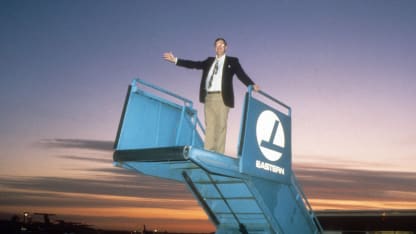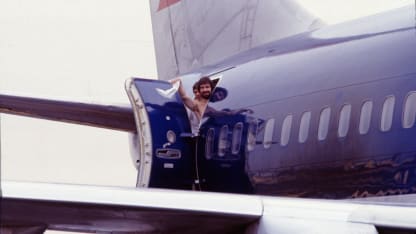Middle Seats and Misconducts
Bryan Trottier in a middle seat? Two different flights to Pittsburgh? Stories from the days when the Islanders travelled commercial

© Bruce Bennett/Getty Images

© Bruce Bennett/Getty Images
Bryan Trottier in a middle seat? Two different flights to Pittsburgh? Stories from the days when the Islanders travelled commercial

© Bruce Bennett/Getty Images

© Bruce Bennett/Getty Images